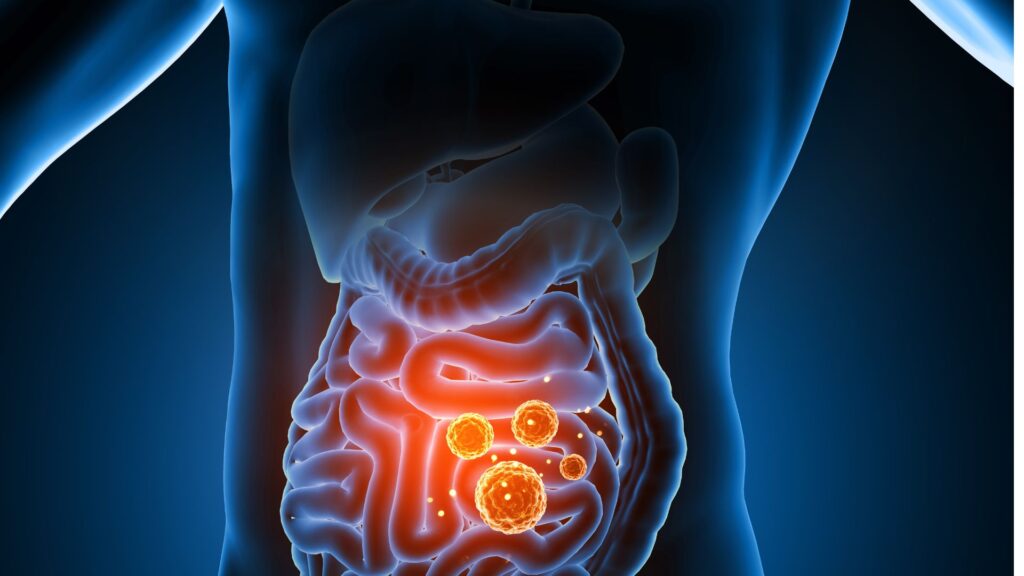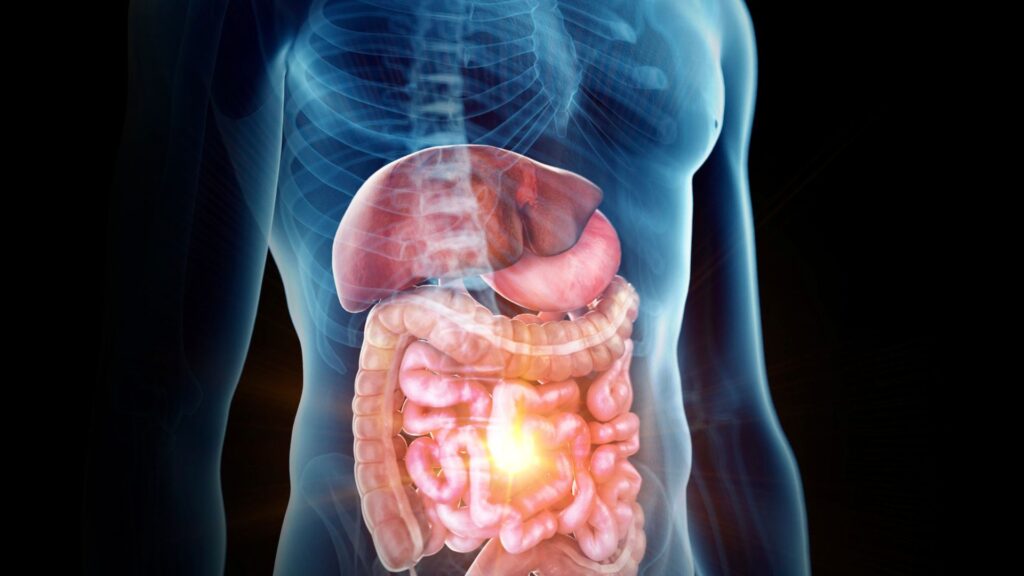
Physiologically, the gut typically refers to the gastrointestinal tract, including the stomach and intestines, where digestion and absorption of nutrients occur. Since the gut is primarily responsible for providing nutrition and energy to the body, it is crucial that it remains healthy. When we talk about gut health, it refers to the balance and proper functioning of the gastrointestinal tract- stomach, small intestine, and colon. This balance is crucial for digestion, absorption of nutrients, and overall well-being.
The gut is home to trillions of bacteria, fungi, and other microorganisms collectively known as the gut microbiota. These microbes play a vital role in various bodily functions, including immune system regulation, metabolism, and even mood. When the gut microbiota is in balance, it promotes good health. However, factors such as poor diet, stress, infections, and antibiotic use can disrupt this balance, leading to digestive issues, inflammation, and other health problems.
Let’s discuss this in detail.
- Digestion and Nutrient Absorption: The gut, particularly the small intestine, is where food is broken down into smaller molecules that can be absorbed into the bloodstream. A healthy gut ensures that this process occurs efficiently, allowing for the absorption of essential nutrients such as vitamins, minerals, proteins, and fats. Proper digestion and nutrient absorption are fundamental for providing the body with the necessary building blocks for growth, repair, and overall functioning.
- Immune Function: The gut is home to a vast and diverse community of microorganisms collectively known as the gut microbiome. These microbes play a pivotal role in training and modulating the immune system. They help to distinguish between harmless substances and potentially harmful invaders, thereby preventing inappropriate immune responses such as allergies and autoimmune diseases. A healthy gut microbiome supports the body’s ability to fend off pathogens, reduce inflammation, and maintain immune balance.
- Mood and Mental Health: Research shows that the gut is deeply connected to the brain. The gut-brain axis is a bidirectional communication system between the gut and the brain, involving neural, hormonal, and immunological pathways. The gut microbiome influences this axis, producing neurotransmitters like serotonin, dopamine, and gamma-aminobutyric acid (GABA) that regulate mood, cognition, and behavior. Disruptions in gut microbial balance have been linked to mood disorders such as depression, anxiety, and even neurological conditions like Alzheimer’s disease and Parkinson’s disease. So, a healthy gut means better mental health.
- Weight Management: Emerging research suggests that the composition of the gut microbiome may impact metabolism, energy extraction from food, and fat storage. Certain types of gut bacteria may promote weight gain or weight loss by influencing processes such as appetite regulation, inflammation, and insulin sensitivity. Therefore, maintaining a healthy balance of gut microbes through diet and lifestyle may support efforts to manage body weight and prevent obesity-related complications.
- Heart Health: The gut microbiome has been implicated in cardiovascular health through its influence on factors such as cholesterol metabolism, blood pressure regulation, and systemic inflammation. Certain gut bacteria produce metabolites like short-chain fatty acids (SCFAs) that have beneficial effects on heart health. Conversely, imbalances in the gut microbiome may contribute to conditions like atherosclerosis, hypertension, and heart failure.
- Skin Health: The gut-skin axis refers to the bidirectional communication between the gut and the skin, mediated by various immune, endocrine, and neural pathways. Disruptions in gut microbial balance can trigger inflammation and immune responses that manifest as skin conditions such as acne, eczema, psoriasis, and rosacea. By promoting gut health, individuals may experience improvements in skin appearance, texture, and overall complexion.
- Overall Well-being: Digestive discomforts, such as bloating, gas, constipation, or diarrhea, can significantly impact quality of life and overall well-being. A healthy gut contributes to feelings of vitality, energy, and general wellness, allowing individuals to fully engage in daily activities and pursue their goals without the burden of gastrointestinal distress.

An unhealthy gut can manifest through various symptoms, indicating an imbalance in the gut microbiota and digestive processes. These symptoms may include chronic bloating, gas, diarrhea, or constipation, which can signal disruption in the gut’s ability to properly break down and absorb nutrients. Additionally, individuals with an unhealthy gut may experience frequent fatigue, as the body struggles to extract energy efficiently from food.
Skin conditions like acne or eczema can also be linked to gut health, as inflammation in the gut can contribute to systemic inflammation throughout the body. Mood disturbances such as anxiety, depression, or irritability may also arise, as the gut-brain axis plays a crucial role in regulating emotional well-being. Overall, paying attention to these symptoms can provide insight into the health of one’s gut and may warrant lifestyle changes or professional intervention to restore balance and promote overall well-being.
Keeping your gut healthy is essential for overall well-being. One key way to maintain gut health is through a balanced diet rich in fiber, fruits, and vegetables, drinking a sufficient quantity of water, and fermented foods like yogurt, lassi, buttermilk, kanji, and kimchi. These foods promote the growth of beneficial bacteria in the gut, which helps to maintain a healthy balance of microorganisms. Staying hydrated and limiting intake of processed foods, sugars, and artificial sweeteners can support gut health.
Try to eat fresh and seasonal whole foods to support gut health. Packaged foods must be avoided as much as possible. Regular exercise also plays a crucial role in promoting good digestion and a healthy gut microbiome. Managing stress levels through techniques such as meditation or yoga can further aid in gut health, as stress can negatively impact digestion.
Finally, getting enough sleep is important, as it allows the body to rest and repair, including the gut. By incorporating these habits into your lifestyle, you can help ensure the health and proper function of your gut.
In conclusion, gut health is integral to numerous aspects of physical, mental, and emotional health. By prioritizing a balanced diet, regular physical activity, stress management, and other lifestyle factors that support gut health, individuals can optimize their well-being and enhance their resilience against various diseases and health challenges.